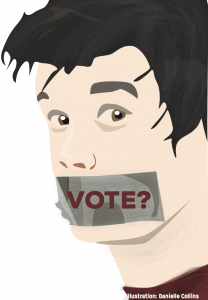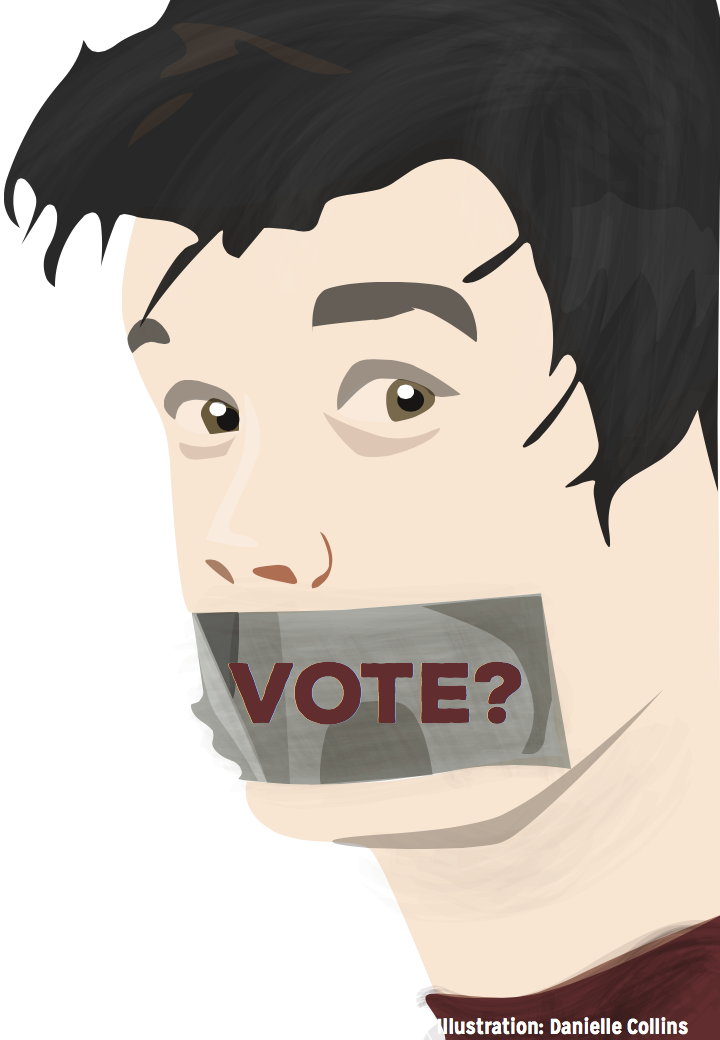By Pankaj Sharma (Contributor) – Email

When talking heads and detractors lather ointment on their Berns during segments of televised political commentary, their free fingers will often point at the crowds of enthusiastic millennials. “As excited as they seem and as much as they tweet,” the commentators will snidely lecture, “we all know that at the end of the day they WON’T VOTE.”
I mean, it’s a fair assumption to make. In comparison to other age groups, the majority of the 18-30 age group does not traditionally make it out on voting day and this phenomenon has been growing throughout the decades. And because young people don’t, pollsters and policy makers shift their attention elsewhere. Parties and candidates develop platforms that appeal to the demographics that vote in order to increase their chances of being elected. Over coffee and Facebook feeds, the youth respond, bemoaning the state of politics and how no one truly represents them. Perhaps some may make a principled and conscious decision to not vote. Or perhaps most of these youth don’t have an opinion at all on the state of politics or government. They don’t want to. They don’t care.
It’s funny though, because while our age group is among the most vocal when it comes to social issues and calls for change, there seems to be a disconnect between how we view the world and how we view the tools and mechanisms that shape that world. And the fact that we aren’t a monolith — that our competing identities, backgrounds, and level of education differ — means that there isn’t a catch-all solution. This complicates how we approach mending that disconnect.
There are many angles that we can take in an attempt to explain youth’s voting disengagement: distrust of politicians, detachment from society and community in general, and a structure of government that does not adequately reflect the outlook of the people. Some could argue our generation is too self-absorbed to care about politics.
Despite these speculations, our generation demonstrates some hope. Now, it’s impossible to take credit for the past federal election, but anecdotally I witnessed many more first time voters in our age group than ever before. In fact, the buzz on social media this past federal election was deafening. Defeating Harper was both trending and borderline meme-ing. Statistically, those who vote are more likely to continue to vote throughout their lifetime. So, those first-timers from November will very likely be voting again. Hopefully they will be doing so during next year’s provincial race.
Elections BC definitely has (a completely non-partisan) interest in seeing more young people voting; hence, they funded UFV’s IDS course this semester. The purpose of the research conducted within the course is to identify unique ideas to recommend to the chief electoral officer. The surveys have so far revealed that UFV students are active voters. A forum will be held on April 22 at 10 a.m. in the Student Union Building’s Great Hall that will present the further findings in greater detail and offer the community an opportunity to discuss the topic.
Disclosure: I am a student in IDS 400.




